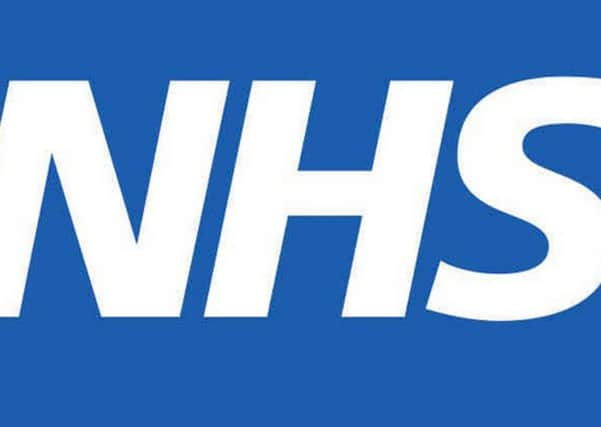Inquiry into levels foreign NHS workers


Desmond Swayne told MPs their demand for a review, amid concerns the NHS is being improved at the “expense of poor people in developing countries”.
The International Development Minister was responding to a report by a cross-party committee, which recommended a study into UK recruitment of overseas workers.
Advertisement
Hide AdAdvertisement
Hide AdOptions for paying compensation to health systems where the overseas workers are from, promoting training schemes involving a temporary UK stay and allowing more medical training to take place in the country of the participants should be considered in the review, according to the International Development Committee.
Labour former minister Hugh Bayley, a committee member and MP for York Central, told a Westminster Hall debate: “We need to make sure our health policies in relation to developing countries do no harm and yet in one respect I believe our approach to the health services that we provide for citizens in this country do immense harm to developing countries.”
The York Central MP said figures from September 2013 showed 68,673 health workers from developing countries working in the NHS, which included 16,615 doctors and 27,032 nurses.
He said: “If those health workers were working in developing countries they would hugely, hugely, hugely strengthen the health systems in those countries.
Advertisement
Hide AdAdvertisement
Hide Ad“So we need to consider whether the way we run the NHS is appropriate.”
He added: “We, as a committee, are asking the Government to institute a new review to think outside the box at ways in which we could manage our health system in the UK in a way that does less harm to health systems in developing countries.”
Mr Bayley said he suggested to Labour former health secretary John Reid that the UK should train a health worker in a developing country for every one of their’s in work in the NHS.
He said: “If we really want to ensure our healthcare is not good at the expense of poor people in developing countries that’s the least we should do.
Advertisement
Hide AdAdvertisement
Hide Ad“If we want to go further then perhaps train two nurses for every one that’s in work in the NHS.
“We need to remember too it’s not just the NHS which sucks in this terribly valuable and scarce resource of developing countries’ health workers, it’s the private sector - particularly the private care homes - who suck in nurses in huge, huge numbers.
“In fact, I would say the private sector has a more predatory impact on health systems in developing countries than the NHS because the NHS has for the past number of years... instituted systems to provide certain safeguards not to employ people from countries where we can directly see it has a detrimental effect.”
Replying for the Government, Mr Swayne told MPs: “Some countries in the world export health workers and draw the remittances from that as a positive balance in their balance of trade, or certainly their balance of payments.
Advertisement
Hide AdAdvertisement
Hide Ad“But I recognise this difficulty and I’m going to surprise (Mr Bayley).
“We are commissioning a study, a review of NHS use of foreign workers in exactly the way you challenged me.”
Shadow international development minister Anas Sarwar welcomed the review after praising the “very powerful” case made by Mr Bayley about ensuring the NHS does not harm the countries the UK is seeking to help.
Before Mr Swayne’s announcement, he said: “Sierra Leone is one of five African countries with an expatriation rate of over 50%, meaning that more than half the doctors born in Sierra Leone are now working in countries of the OECD (Organisation for Economic Cooperation and Development).”
Advertisement
Hide AdAdvertisement
Hide AdHe went on: “The right to migrate is, of course, not in question but it is unacceptable that a country with one of the weakest health systems in the world is in many ways subsidising a country with one of the strongest, if not the strongest.”
Sir Malcolm Bruce, chairman of the International Development Committee, opened the debate by suggesting NHS expertise should be used to help develop more health systems overseas.
He said staff had been seconded to Sierra Leone - one of the West African countries badly affected by the Ebola outbreak - but it raised a number of issues.
The Liberal Democrat MP said: “One is that, actually there ought to be a permanent partnership across Government to use Dfid and the NHS capacity to help build those health systems and use some of the NHS expertise, which was being done and is being done in Sierra Leone.
Advertisement
Hide AdAdvertisement
Hide Ad“But what we revealed... we are not training enough health service staff for our own needs and I would argue, and to some extent the committee’s recommendations point to this, that we should be training more than enough staff for our own needs on the grounds that we could then have people who can be seconded abroad without leaving our own health service understaffed.
“And although we have a policy of not recruiting directly into the NHS from a whole long list of developing countries, a worthy attempt to avoid if you like brain-draining to us qualified health professionals from poorer countries, the fact remains they are not prevented from coming here or applying and there are doctors and nurses from Sierra Leone working in our health service, when one would like to think they should be working in their own health service - alongside some of our volunteers and secondees to tackle this problem.”